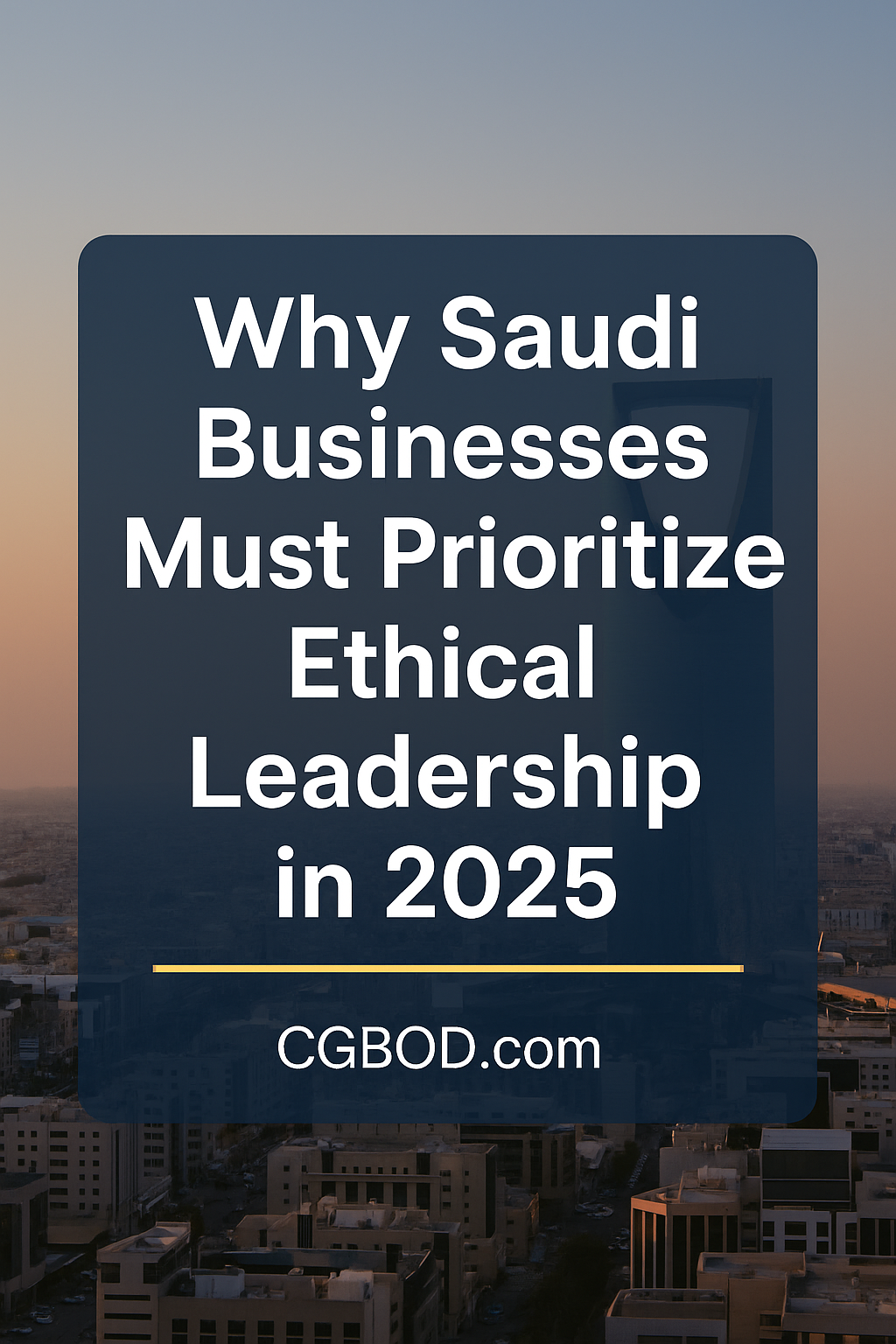
• Introduction
In an era where transparency and accountability are key business drivers, ethical leadership is no longer optional — it’s a necessity. According to a 2024 PwC survey, 82% of Middle Eastern executives believe that strong ethics significantly impact corporate performance. In Saudi Arabia, Vision 2030 reforms are pushing businesses towards higher standards of governance and corporate responsibility.
With regulatory updates from the Capital Market Authority (CMA) and increasing investor scrutiny, 2025 is the year Saudi companies must embrace ethical leadership to sustain growth, build trust, and stay compliant in a transforming market.
• What is Ethical Leadership ?
Ethical leadership means guiding a business based on integrity, fairness, and responsibility. It involves making decisions that are morally sound, legally compliant, and beneficial to all stakeholders — employees, investors, customers, and the community.
Leaders in Saudi businesses are expected not only to comply with laws but also to champion ethical practices that inspire loyalty and long-term success. Ethical leadership Saudi companies pursue tends to translate into better brand reputation, employee retention, and market credibility.
• Why Ethical Leadership Matters for Saudi Businesses
Saudi Arabia’s market is evolving rapidly, driven by Vision 2030’s emphasis on economic diversification, transparency, and governance. Ethical leadership isn’t just about avoiding scandals — it’s about building resilient, future-ready organizations.
Key reasons ethical leadership is crucial for Saudi businesses in 2025:
- Regulatory Pressure: CMA and SAMA demand higher compliance and governance standards.
- Investor Expectations: ESG (Environmental, Social, Governance) compliance is now a deal-breaker for major investors.
- Brand Reputation: Companies with ethical leaders gain customer loyalty and media trust faster.
- Talent Attraction: Young Saudi professionals prioritize working with socially responsible companies.
• Key Challenges in Adopting Ethical Leadership
Despite its importance, building a culture of ethical leadership in Saudi Arabia faces several challenges:
- Cultural Shifts: Moving from traditional, hierarchical leadership models to transparent and participative management.
- Lack of Awareness: Some executives may undervalue the financial benefits of ethics-driven leadership.
- Resistance to Change: Senior leadership resistance and entrenched business practices can slow transformation.
- Measurement Difficulties: Measuring ethical behavior and embedding it into KPIs remains complex.
• Solutions & Best Practices for Promoting Ethical Leadership
Saudi businesses can implement the following strategies to lead ethically in 2025:
Establish a Code of Ethics: Create a well-defined, enforceable set of ethical principles.
Leadership Training: Provide regular training focused on leadership ethics Saudi Arabia regulations emphasize.
Create Transparent Decision-Making Frameworks: Ensure all major decisions are reviewed through ethical lenses.
Reward Ethical Behavior: Build incentives for managers and employees who model ethical practices.
Engage Stakeholders: Foster open dialogue with employees, investors, and regulators.
Use Technology: Leverage GRC (Governance, Risk, and Compliance) software like CG BOD to monitor ethical compliance automatically.
• Real-World Case Studies: Ethical Leadership in Action
SABIC: The global chemical giant implemented a strong corporate responsibility Saudi framework, embedding ethics into every level of decision-making. Their transparent governance model helped them win global sustainability awards.
Saudi Aramco: By focusing on leadership ethics Saudi Arabia values prioritize, Aramco built world-class governance systems, ensuring investor confidence even during market turbulence.
• Conclusion
Ethical leadership is no longer just a “good to have” — it’s a competitive edge in Saudi Arabia’s evolving business environment. As corporate governance becomes stricter and customer expectations rise, only those businesses that prioritize ethics will thrive.
In 2025 and beyond, Saudi companies must invest in leadership models that promote transparency, integrity, and corporate responsibility to achieve sustainable success.
